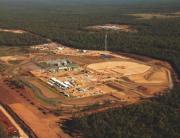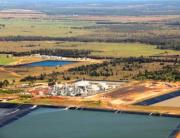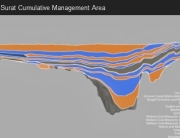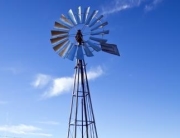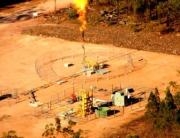“This is a complex issue and we are concerned that we are seeing the government promote the benefits to one part of the community while turning a blind eye to the impacts elsewhere.
“There’s no doubt that’s it’s better to do something useful with the water rather than see it evaporate in a pond, but BSA has said all along that the extracted water must be used to mitigate impacts before it’s put to new uses.
“This desalination plant doesn’t magically manufacture water; it is water that has been drawn from underground as part of the gas extraction process. We don’t deny the treatment of this water provides short term benefit to some farmers and supplements Chinchilla’s water supply, but we can’t forget that that extracting the water is potentially depleting an aquifer and affecting current users.
“It’s like robbing Peter to pay Paul.”
Mr Hamilton said BSA was calling on the industry to be proactive by offering to replace groundwater bores before they are impacted, instead of waiting for three years for government modelling to direct the companies do so. Such a gesture would go a long way to repairing the break-down of trust and the fracturing of local communities.”
He said it was only a matter of time before landholders accessing their water supplies from the Walloon Coals Seams will see the impacts from CSG.
“Farmers whose bores have been identified in the Government’s underground water modeling as expecting to suffer long term loss, will be offered “make good” arrangements. However, BSA is still not clear where the “make good” water will come from.
“We are very concerned that the only option for some will be to accept financial compensation to make up for their loss of water. Unfortunately money doesn’t water crops or livestock.
The other big issue that BSA fears has been brushed under the carpet is the disposal of salt.
“This industry is expected to generate millions of tonnes of salt and at this stage, none of the CSG companies seem to have a suitable solution for its disposal. We are very fearful that the salt will end up in landfill, resulting in another serious environmental hazard .”

